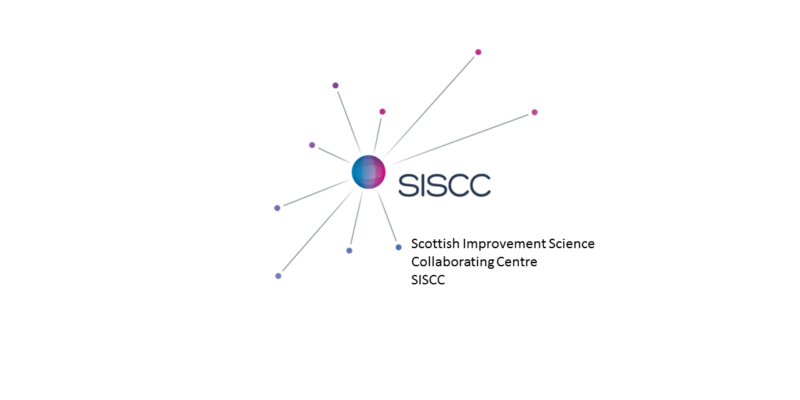
How do we deliver the ‘best care’ to improve health and social outcomes for the population of Scotland?
What do we mean by ‘best care’? Does this look and feel the same for everyone in every town across Scotland? Can a personalised approach deliver consistent and equitable standards of care? How do organisations implement change, spread good ideas and learn from each other about how to do things differently to deliver real health outcomes?
Scotland has an international reputation for our approach to quality improvement bringing about new ways of delivering care and improving outcomes; however this is set against the background of increasing demand on resources and services.
This feels like a lot more questions than answers and that’s the challenge that the Scottish Improvement Science Collaborating Centre (SISCC) has been funded to address. Our challenge is to go beyond the evidence-base for care to examine how we deliver care and implement change and strengthen the evidence-base for large-scale sustainable change.
So how will SISCC achieve this? The answer is in the title – Collaboration. This unique model of research exploits the tensions between practice and academia. The hard questions faced by practitioners and third sector groups delivering health and social care are being posed to academics from Universities across Scotland – who work together to develop novel approaches and evaluation methods to accelerate learning and change. The 17 year gap between research and implementation in practice is an accepted reality, but in this approach we aim to collaborate to improve real health in real time.
Our work
Our Evidence-Into-Practice project, is examining how evidence-based interventions supporting breastfeeding and skin-to-skin (kangaroo) care can be implemented in neonatal units. Breastfeeding and kangaroo care improve short, medium and long-term outcomes for a vulnerable group of newborns, and can help mums and dads feel like parents to their children in a very technology driven/survival focused environment. This work supports the implementation of the Scottish Government’s The Best Start plan for maternity and neonatal care. The fundamental aspect of this approach is to work with staff delivering the care and third sector groups to interpret the impact and feasibility of the research evidence within local contexts, exploring barriers and considering how they might devise local action plans to implement changes to enhance breastfeeding and kangaroo care.
Polypharmacy is a term to describe when someone is on more than ten medicines. As our population ages and an increasing number of people live with chronic conditions, the proportion of the Scottish population who are on more than ten prescribed medicines will increase. As this proportion increases, so does the potential for more people to suffer harm from medicines as a consequence. A pilot study demonstrated the benefits of an informatics tool to identify GP patients requiring medication reviews and that this could lead to fewer people requiring hospital admission due to a medication problem. Increasing the scope of the medicines under review through the informatics tool and involving community pharmacists (highlighted in Realising Realistic Medicine), our safer prescribing (PDQIP) project aims to evaluate whether these mechanisms can result in reduced harm to patients and explore the approaches to implementation.
As part of our work with the Health Foundation, we’re examining how to put knowledge into action at scale. We have developed two improvement-focused massive online open courses (MOOCs) to evaluate how this online form of training can influence behaviour and practice; covering key areas in health and social care. Tackling Inequalities Through Health and Social Care Design explores how practitioners and voluntary services can influence improvements in service delivery to reduce the impact of inequalities. This four week course will start in February 2018. We’ve also redesigned our Compassionate Care: Getting it Right course into a programme of four two-week courses that will run in Spring 2018. This programme is aimed at supporting practitioners, voluntary services, carers and individuals to explore what compassionate care means, techniques to deliver and improve compassionate care and the role of leadership and organisations. This offers the opportunity to not just learn from experts – but also the real world experiences of the thousands of international learners taking part.
Our work addresses real health problems effecting the health and wellbeing of the Scottish population. Working in collaboration with organisations delivering care, recipients of care and representative organisations – to understand what works, when and under what circumstances to accelerate and support change in health and social care.
If you’d like to find out more, or would like to take part in the evaluation of one of our MOOCs, please contact us at SISCC@dundee.ac.uk.
Contact: Julie Anderson, SISCC Associate Director (Partnerships) Scottish Improvement Science Collaborating Centre, School of Nursing & Health Sciences, University of Dundee
